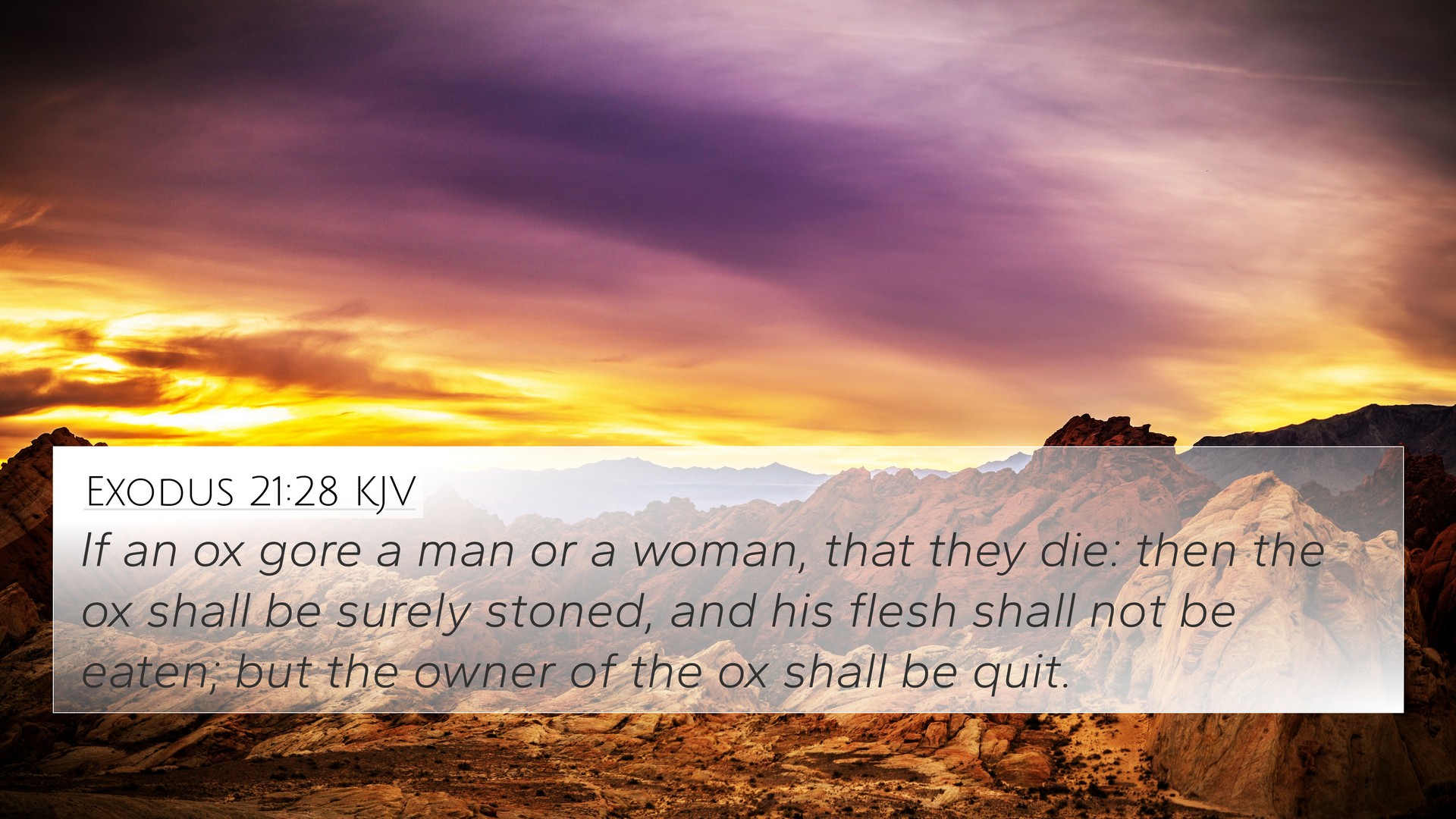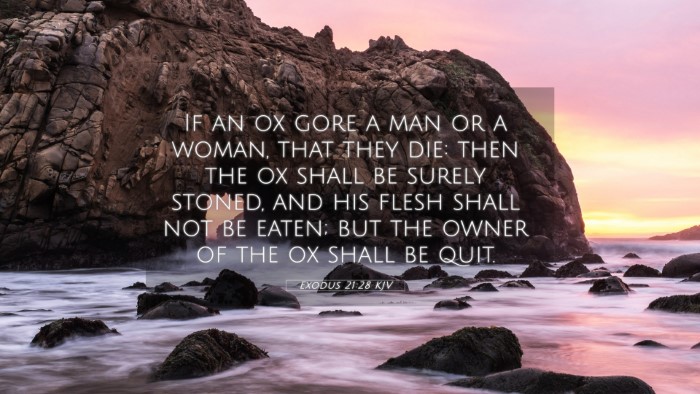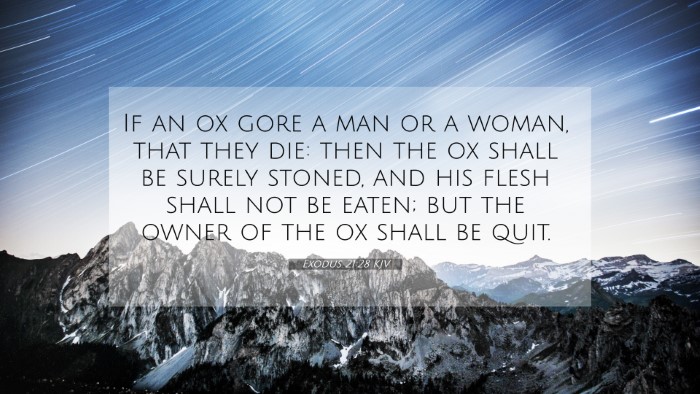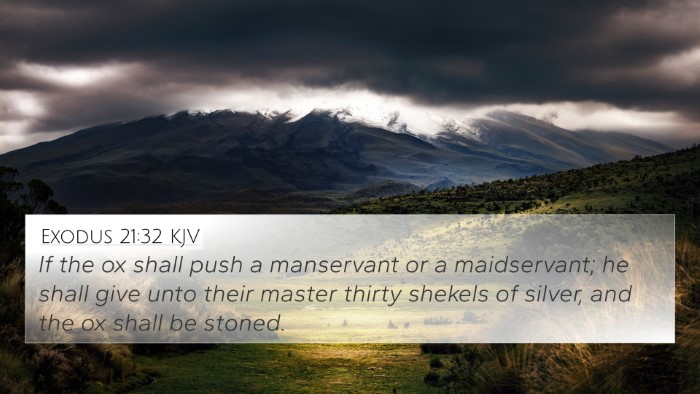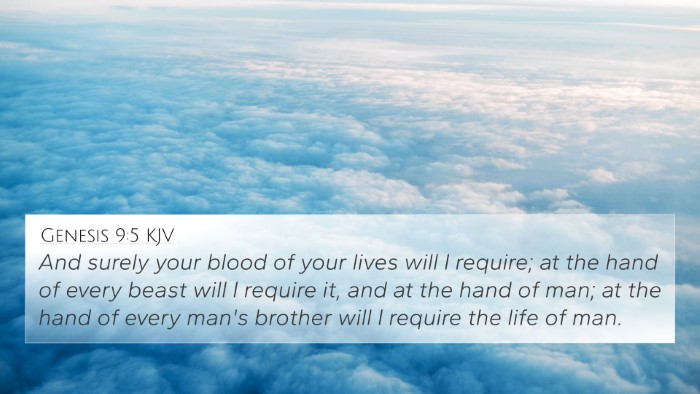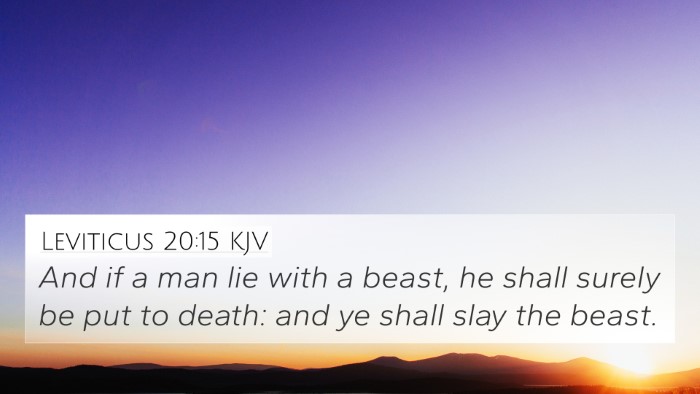Understanding Exodus 21:28
"If an ox gores a man or a woman to death, the ox must be stoned, and its flesh must not be eaten. But the owner of the ox will be held responsible." - Exodus 21:28
Interpretation and Meaning
Exodus 21:28 presents an important legal principle in ancient Israel regarding personal responsibility and restitution. This verse is part of a larger context where God provides guidelines for various social issues and personal conduct. The stipulation regarding the goring ox addresses both animal control and the owner's liability.
Insights from Commentators
Matthew Henry: Henry emphasizes that this law illustrates the sanctity of human life and the importance of accountability for one's property. The ox represents a force that, if not managed, can lead to destructive consequences. The owner's negligence in controlling the beast leads to personal responsibility in cases of harm.
Albert Barnes: Barnes notes that this verse speaks to the legal principle of retribution and justice in ancient Israel. The owner of the ox is held liable, reflecting the necessity of ensuring that one’s animals do not cause harm to others. Furthermore, the stoning of the ox signifies both the seriousness of the offense and the way to address the repercussions of the owner's irresponsibility.
Adam Clarke: Clarke brings out that this law serves both as a protective measure for individuals and a warning to owners to maintain control over their property. The provision of stoning the ox symbolizes a method of social cleansing and accountability, presenting a fair approach to dealing with loss and guilt.
Thematic Connections
This verse highlights crucial themes in the Bible, including:
- Personal Responsibility: Owners must be accountable for the actions of their property.
- Justice: The laws enforce an equitable system for dealing with damages.
- Societal Order: Maintaining control of animals reflects broader societal concerns for safety.
Cross-References
Exodus 21:28 has several cross-references throughout the Bible that illustrate similar themes of justice and responsibility:
- Deuteronomy 19:21: Addresses the principle of just retribution.
- Proverbs 22:3: Advises on foresight and caution against danger.
- Leviticus 24:18: Discusses the importance of accountability for injurious actions.
- Job 5:21: Speaks of protection from unforeseen dangers.
- Matthew 5:25: Warns about settling matters quickly to avoid judgment.
- Luke 14:31: Emphasizes evaluating potential loss in decision-making.
- Galatians 6:5: Encourages each person to bear their own responsibility.
Connections Between Bible Verses
The verse invites reflection on how personal conduct aligns with societal laws and moral expectations.
- Inter-Biblical Dialogue: Exploring the themes of justice and accountability across Scripture enhances understanding.
- Thematic Bible Verse Connections: Exploring laws in the Old Testament against New Testament teachings offers depth in interpreting Jesus' perspective on the Law.
Practical Applications
Understanding Exodus 21:28 can be applied in various contexts today, including:
- Responsibility in Stewardship: Reflecting on how we manage and control what is entrusted to us.
- Legal Principles today: Drawing parallels to modern laws surrounding liability and personal injury.
- Moral Accountability: Encouraging transparent dealings in personal and professional lives.
Conclusion
Exodus 21:28 serves as a vital reminder of justice and responsibility. By examining this verse through various commentaries, we can glean insights into its application in our lives today, while also identifying connections between other scripture that discuss similar themes. These connections enrich our understanding and leave us with a profound sense of our obligations towards others, whether in our immediate sphere or within our broader societal structures.
